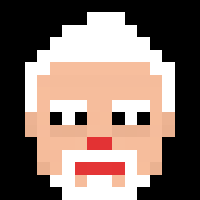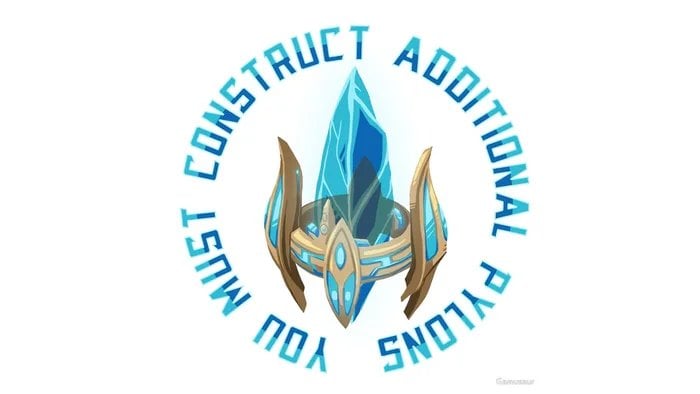I don’t believe free will is real. I’m not a deep physics person (and relatively bad at math), but with my undergrad understanding of chemistry, classical mechanics, and electromagnetism, it seems most rational that we are creatures entirely controlled by our environments and what we ingest and inhale.
I’m not deeply familiar with chaos theory, but at a high level understand it to be that there’s just too many variables for us to model, with current technology, today. To me that screams “god of the gaps” fallacy and implies that eventually we WILL have sufficiently powerful systems to accurately model at that scale…and there goes chaos theory.
So I’m asking you guys, fellow Lemmings, what are some arguments to causality / hard determinism, that are rooted entirely in physics and mechanics, that would give any credit to the idea that free will is real?
Please leave philosophical and religious arguments at the door.
The definition of “free” and “will” are to shady to be scientific.
So there is no scientific arguing about it, just philosophical.
I like this take, but it also makes me feel like I could do a better job describing the intent of my question in more scientific terms. I hope to do so, here.
If one were to have sufficiently advanced technology akin to future MRI machines that could image the state of the human brain at Planck time resolution, my argument is that the very process of “a decision” (act, choice, idea, etc.) could be quantified. And if that is the case, then there must be chemical triggers and causal events that could have predicted that state of the matter and energy. And if that’s the case, then we must really be products of our environment in an (currently) incomprehensibly large chemistry equation.
If any one decision could be quantized, reverse engineered, and then predicted through such means, then it stands to reason every decision can be. And if that’s the case, free will cannot exist.
The brain as far as we know works like nowadays “ai” it makes assumptions and tries to get the best and most fitting outcome for itself, this decision is influenced by a astronomical amount of data (thats the difference to nowadays ai) and (for the lack of better scientific measurements) emotions, meaning that theoretically it is possible to perfectly predict your choices, however, if you know about said prediction it will influence the system again.
Saying you have to pick between a Red and a Green Gummy Bear with the exact same taste, you will probably pick the red one because the subconscious associates red usually with food (red and yellow, that’s btw why many fast food chains use those colors) however, if you are aware of this, this will likely end up in picking the green one as rebellious act against nature, wich again is predictable because humans are self aware and don’t want “to be slave to their own instincts” now if you know about the prediction, the only way to “be unpredictable” would be to not chose a Gummy Bear thus “breaking” the test… Wich is predictable. This is of course a very simplistic experiment but gets the point across, you can’t be unpredictable unless you break the laws of physics. This does however not prove or disprove the “free will” inside the system you are in, you could chose things freely, you just don’t because its unnecessary and time consuming.
TLDR: we don’t know.
Thank you for a fun answer.
I’ll have to find some gummy bears.
Now here’s an interesting take.
In principle, one might be able to predict behavior based on this model.
But I would asset that it is not possible to achieve these conditions no matter what godlike technology one has.
Let’s go simpler. We don’t want to predict a human we want to predict the path of one electron.
Starting from initial conditions we should be able to predict the path of that electron right Wrong!
It’s wrong because it is impossible, in a way that cannot be overcome in this or any universe, to know those initial conditions.
And that may seem like a technicality, but that’s exactly where the chink in the armor is: no matter how precise your model, it’s impossible to determine the state of a closed system, because it’s closed, and it’s impossible to predict the behavior of an open system, because its evolution is determined by its interactions with its surroundings, and you can’t get all that information.
So the idea of using physics to predict things precisely is a Platonic ideal, not a thing which can manifest in reality.
The problem with your simplification is that it loses all predictability.
We can’t predict an electron on a miniscule scale. But we certainly can predict the rock it is a part of falling.
We can’t predict an electron. But we can determine and estimate with some probabilities. And on a higher scale the summation of individual behavior becomes quite predictable.
If we were to take only your electron argument, it implies we can not predict any material movement.
But the macroscopic universe responds to the subatomic universe because of the existence of chaotic systems which can amplify the tiniest difference. The prediction of the rock breaks down over time because it’s interacting with macroscopic inputs from chaotic systems around it.
deleted by creator
This is the best thing I’ve seen on Lemmy so far. Physics based philosophy, hell yes.
All I know is that this post makes me want to watch Devs again. OP, if you haven’t seen it, check it out - one season miniseries about exactly this
Ohh thank you! Is missed this one - looking forward to it
I’ll have to check it out
carefully leaves his philosophical hard determinism at the door.
Well, I’d better learn a thing or two
I’m far from knowledgeable about this, but the only thing I’m aware of that might disrupt determinism is quantum mechanics. Something about particles at that level not having set values until they are observed, making them truly random. I have no clue how that could lead to free will. We still have no control over it. It’s more like they are the base that everything else is determined off of.
The double-rod pendulum is one of the simplest dynamical systems with chaotic solutions. …from Wikipedia
This system is very simple yet even with initial conditions varying by (less than) Planck’s time or Planck’s length, theoretical resulting behavior changes after a few cycle.
Physical determinism says that there cannot be creation of (new) information yet this system does exactly that.Here’s the thing. At what point does the causal chain get interrupted, free will kick in, and then the old causal chain fires back up? Because that’s what arguments like yours are implying.
The response is always that I don’t understand the theory you have put forward. I’ll grant that.
If the proof free will is tied to a seemingly stochastic system how is that “free will”. If I replaced your decision making with a random number generator would that be free will?
I sincerely hope you will engage with me here.
To be perfectly clear, my view is that we do not have free will but our limited set of information makes it seem like we do and so it is rational to continue on despite this. Put another way, I know the latest Mission Impossible movie was made months before I saw it, and that the outcome was predetermined, but wow, what a ride.
I’m glad you’re enjoying this topic as much as I am
It’s something I think about constantly, whether I want to or not! ;)
At what point does the causal chain get interrupted ( … ?)
The system is diverging at every point in time :
In chaotic systems, the uncertainty in a forecast increases exponentially with elapsed time. (… same article from Wikipedia)
I believe one has to see this before being able to apply it to free will explanations.
So, at what point is your personal decision making controlling the divergence so that it reflects your will? That is what I am asking.
at what point ( … ? )
Before answering this I need to know if you get the basics : what do you understand so far ? About chaotic systems ? About their variable rate of exponential divergence ? About their “liberty” ? About the fact we have such systems in us, only far more complex ?
And beyond any explanations, if you came to know we have free will, how could we stand the shame and guilt of not doing enough ?
You can’t answer the question.
It’s something I think about constantly, whether I want to or not! ;)
When I was young I was in that situation, with those same questions. But I was lucky : I had the right science and the right IQ and I found the answers. You are now thirsty and I gave you some salt ; if you are too blind to see it or too arrogant, bad for you, so i will not come back to this.
Goodbye.
You still haven’t answered the question and have made at least a couple of inferences about me that aren’t really accurate.
Anyway, people say it you can’t explain it you don’t understand it
Edit: sorry, wrong thread. I would still say you are making lot of assumptions.
How old do you think I am? Let’s start with that. :)
I have a theoretical degree in nuclear physics, and it seems to me that sub-atomic scale events like quantum tunneling suggest that reality is neither fully determined nor fully chaotic, but something in between: probabilistic. Whether we can consciously affect the probabilities of our own actions remains an open question, but we can at least say that causality is not the whole picture.






